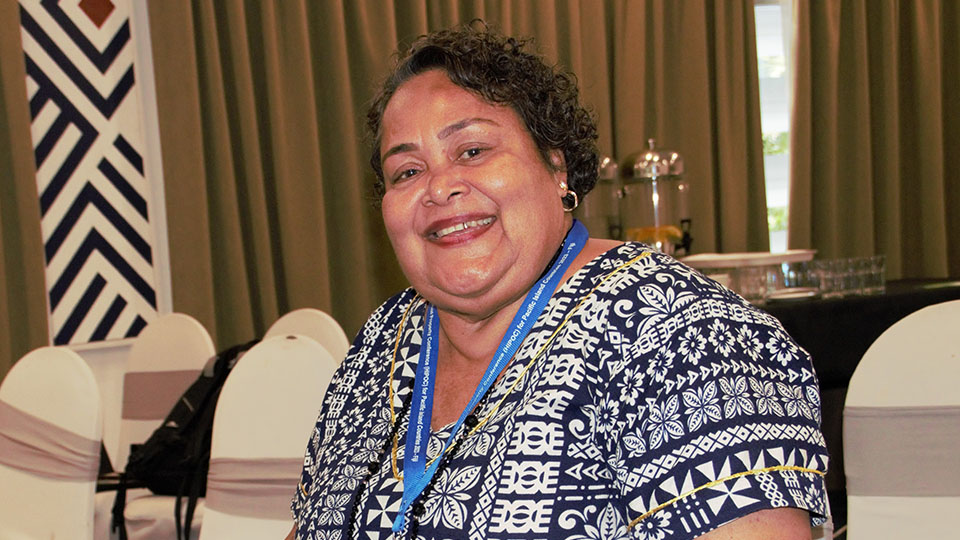Turning a Declining Coconut Trade into a Successful Artisan Soap-making company in Fiji
When the copra export market prices dropped in Fiji in the late 1990s, the Simpson family, who had been in the trade for six generations, knew it was time to diversify. Copra is dried coconut meat from which coconut oil is extracted. By 2012, the family had determined that building on their traditional skin-healing herbal knowledge was their best option to add value to the coconuts on the plantation. Their soaps and herbal oils have grown in popularity, and the company is seeking to expand beyond the country's borders.
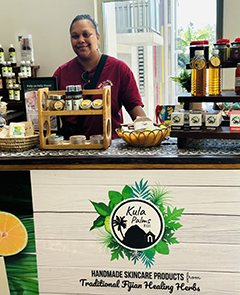
Samanunu Simpson grew up on Kuladrusi estate, in Savusavu, on the island of Fiji Island of Vanua Levu. She moved to the capital city of Suva, on the island of Viti Levu, to attend high school and study for her master's degree in marine biology at the University of South Pacific.
When her father, Vesi Simpson, started developing his first product, a coconut charcoal soap, he became the soap's first Fiji original producer and needed help marketing it. Samanunu completed her research on the acoustics of spinner dolphins and joined him in 2016. Samanunu, her brother, also a scientist, and her father set up Kula Palms Fiji.
"It is just me and my Dad." "I went from being a marine biologist to a soap entrepreneur," said the 35 years old, who became the director of the company, manages the commercialization, packaging, marketing, and general administration in Suva, while her father manufactures the soaps on the family estate in Savusavu.
Maintaining Fiji’s Traditional Herbal Knowledge for Natural Skincare
Samanunu firmly believes in the potency of traditional Fijian herbal remedies for healing. "Here in the tropics, skin infection is quite common and tops the list of illnesses affecting both women and children," she explained. However, according to Samanunu, traditional herbal knowledge is phasing out as generations unfold. "Our sole vision as a family is to revive the old herbal remedies passed down from our ancestors and utilize this gift to bring life and healing to those in need," she said. Vesi learned about wild plants from his mother, aunts, and the late women in his family. "Today," according to Samanunu, "no one wants to go deep into the bushes to pick herbs, no one wants to work on a copra plantation, people are moving away from the countryside towards cities." Kula Palms Fiji seeks to marry traditional knowledge and modern science in soap-making.
Healing Soaps with Fiji Coconut Oil as a Key Skincare Ingredient
Since its beginning, the company went from making coconut charcoal soap, which remains its lead product, to producing a full range of soaps and oils.
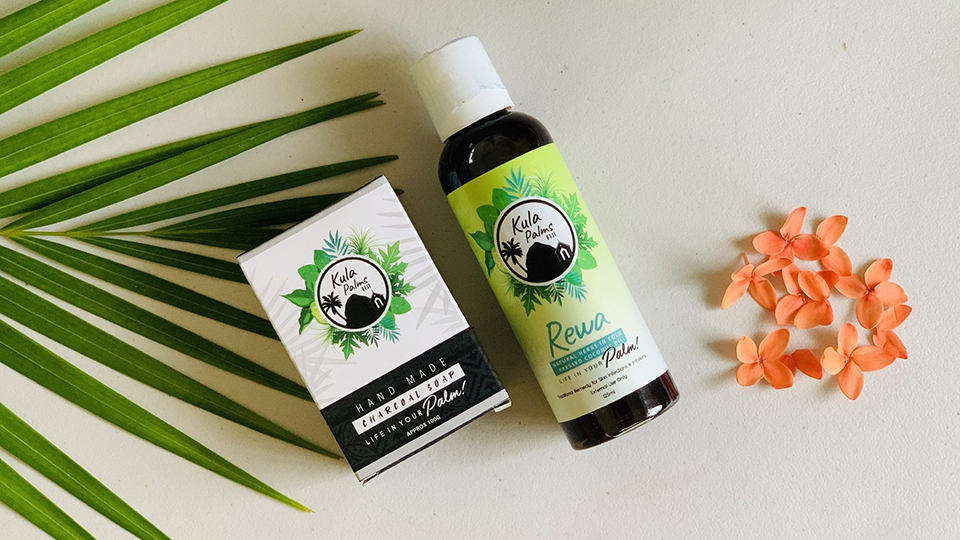
Other products in the range include herbal, turmeric, moringa, and tamanu (coastal nut) soaps. Vesi collects the herbs that will give the soaps their skin-healing properties combined with the properties of coconut oil, alleged to be antibacterial, antifungal, and antimicrobial.
According to Samanunu, each soap has unique benefits. Charcoal helps reduce oily skin, balances the skin's pH, and adds hair volume, while turmeric helps a range of skin conditions, and moringa works on the skin's elasticity, fine lines, and wrinkles.
Kula Palms Fiji’s Exotic Body Oils
Kula Palms Fiji also manufactures several oils. One is 'Rewa' oil, which includes 16 different native plants. It is a traditional oil used in Fiji. The company also commercializes 'pure dilo/ tamanu oil,' 'Pure Virgin Oil,' and 'Na i masi' traditional Fijian massage oil. They also started a scented oil line to answer customers' requests, including lemon grass, frangipani, tiare, and coconut oils.
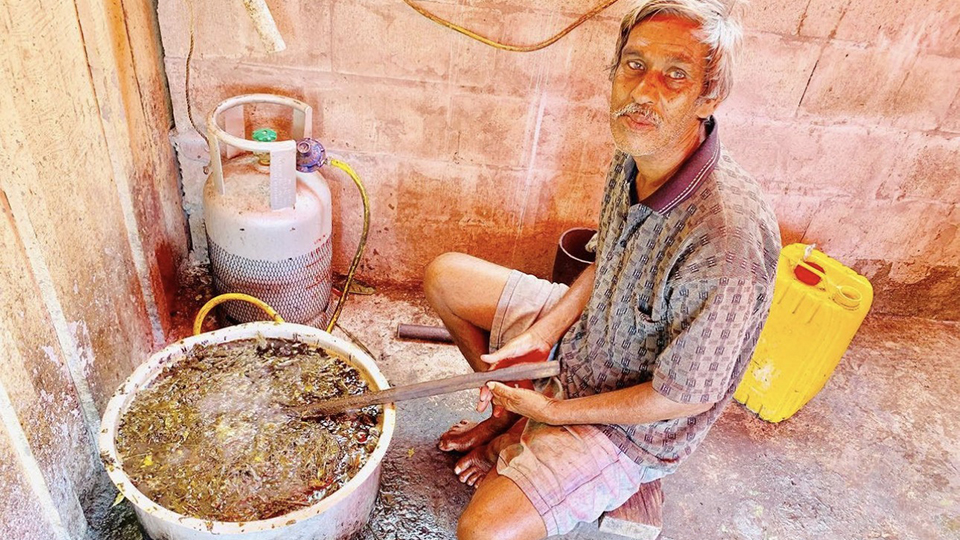
The story behind Kula Palms Fiji’s first retail shop and e-commerce store
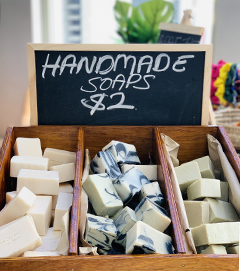
The company grew cautiously. The marketing started slowly with friends and acquaintances, then on markets. Later, the company had a small booth in a shopping complex in Suva, but when Covid-19 hit, it closed. The crisis, however, did not affect the sales too severely as customers would still order the increasingly popular soaps.
In 2019, Kula Palms Fiji opened another booth in a prominent shopping center and, in 2023, opened its first shop in Lautoka, on the West coast of Viti Levu. The company also has an e-commerce site and a small selling point on the estate in Savusavu.
With seven staff, the company is able to produce 1,000 soaps weekly.
Building a Global Botanical Skincare Brand
Samanunu had not given intellectual property much thought. Still, after attending a conference jointly organized by WIPO and the Fiji Intellectual Property Office and supported by the Japan Patent Office, she is determined to register her trademark and learn more about trade secrets to protect her soap-making process.
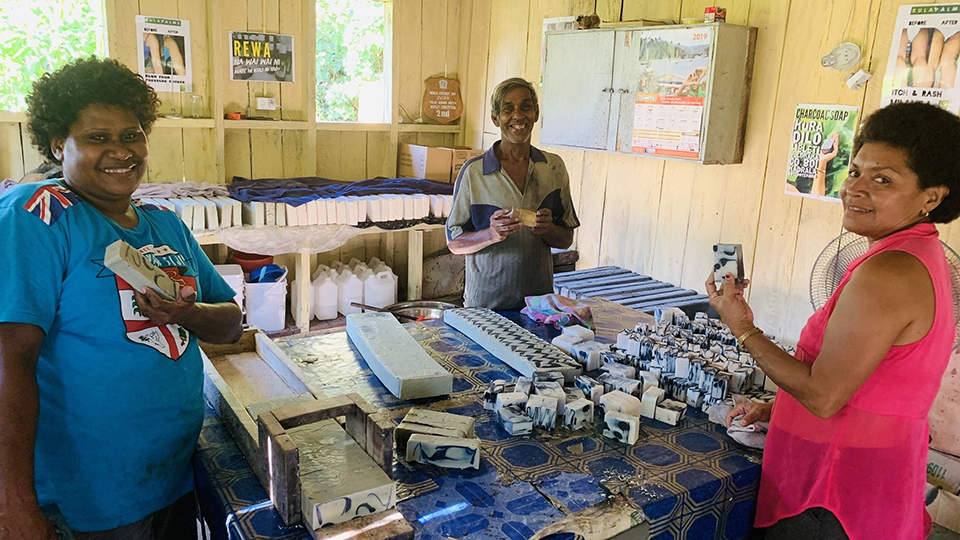
She has some customers in New Zealand and Australia but now wants to expand to the United States, Canada, and Europe. She is working on packaging, labeling, and branding to enter those markets. She wants to create jobs and educate people about soap making and the importance of herbal knowledge for health.
"There is a lot of potential for the business," she said, "customers are always coming back." "My greatest achievement is all those healing testimonies from customers."

